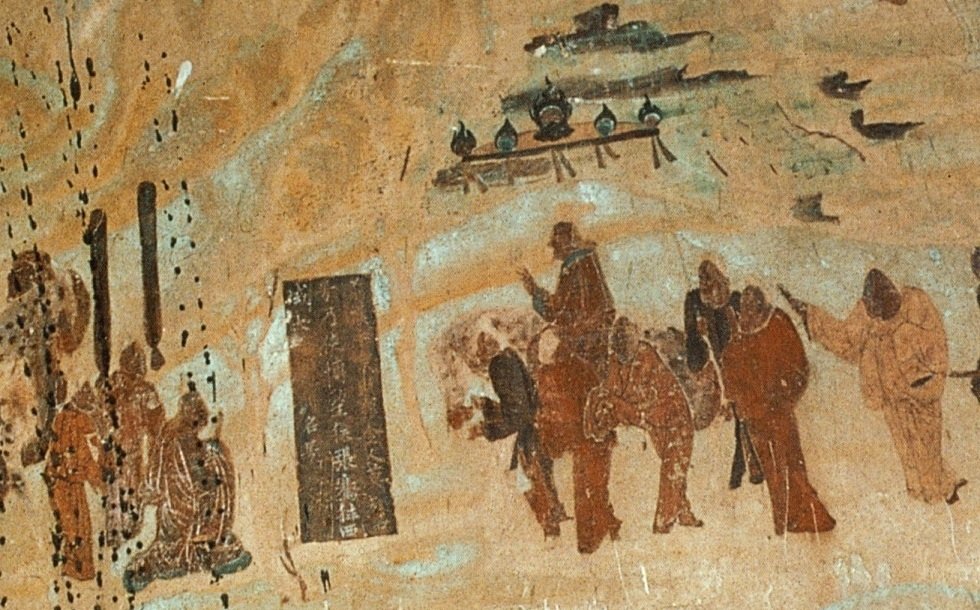MessageToEagle.com – The first mention of the Yuezhi civilization can be found in ancient Chinese sources from the 2nd century B.C. They are describes as nomadic people living in the western part of Gansu province, northwestern China. Known by a Chinese name (“Meat Eaters,” a Chinese appellation), the Yuezhi was one of the numerous Iranian or Aryan nomadic tribes.
The Yuezhi are generally believed to have spoken a language related to Tocharian, of the Indo- European family, and to have been ethnically Caucasoid.
Before being driven out by the Xiongnu, a powerful people of North China the Yuezhi dominated the northern steppes. In search for new territories the Yuezhi moved westward into Sogdiana and Bactria, where they putan end to Greek rule in both regions.

Ancient Bactria was located between the Hindu Kush mountain range and the Amu Darya river, covering the flat region that we today recognize as modern-day Afghanistan and Tajikistan. Bactria was the birthplace of Zoroastrianism, and later also hosted Buddhism before becoming Muslim.
The Yuezhi engaged in many conflicts. The fought the Tocharians, Scythians and even the Han Empire in Central Asia.
When the Yuezhi entered Bactria, they defeated the Greco-Bactrian kingdom, forcing them to regroup in India. They also displaced a people called the Saka, who responded by overrunning portions of the Parthian Empire.
See also:
Lost Ancient Greco-Bactrian Kingdom Of 1,000 Cities
Mysterious Disappearance Of Scythians Remains Unsolved
Ancient Great City Of Napata In The Kingdom Of Kush
Tribes of Scythians and Saka eventually established themselves all over Afghanistan. In time, the Yuezhi consolidated and established a sedentary, agricultural economy. A new dynasty, known as the Kushan, was subsequently founded by one of the five chieftains among whom Bactria was divided. The Kushan kingdom survived for three centuries, until forces from Persia, Pakistan, and India all re-conquered their old territories.
Missionaries from the Great Yuezhi played an important part in the propagation of Buddhism in China. The spread of Indian culture into Central Asia as far as the borders of China probably resulted from Kushan influence.
Copyright © MessageToEagle.com. All rights reserved. This material may not be published, broadcast, rewritten or redistributed in whole or part without the express written permission of MessageToEagle.com






